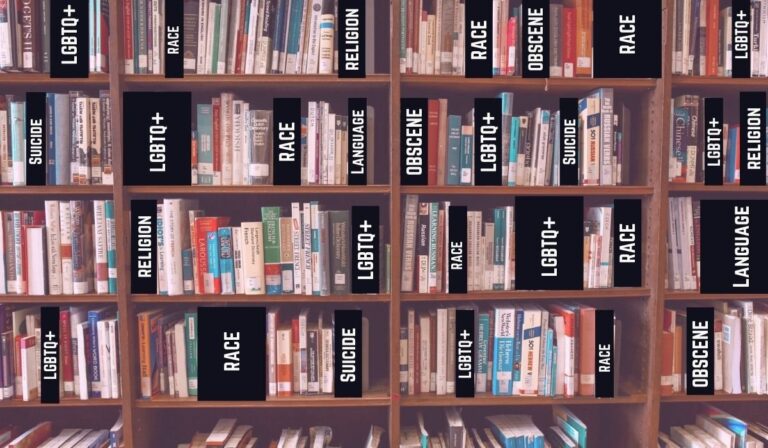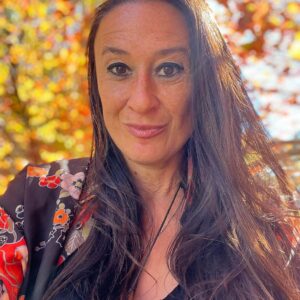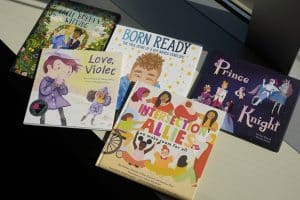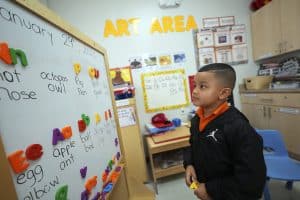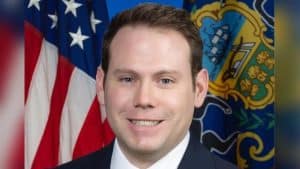As a child who was extremely shy and bullied, I missed out on a lot of youthful experiences. I didn’t get invited to parties, didn’t participate in sports, didn’t even have a date to the prom until my parents set me up with a family friend.
What I did have were books. Books were my window into a world I wasn’t ready to enter. It was through books that I learned what it might be like to go to a dance, to be on a basketball team, to kiss a boy.
Books didn’t just help connect me to the experiences of the kids around me, they helped me understand more about myself. Since we were the only Jewish family around, reading books about other Jews helped me to rise above the pennies thrown at me and the taunts of “you killed Jesus” and develop a deep love and appreciation of my faith. Since we were the only first generation family around, reading books about other immigrant families helped me come to terms with both the shame and the pride that I felt in having a mother with limited English. Since I was painfully shy, reading books about other teenagers who eventually found their voice gave me hope that one day I would as well.
The more I read, the more literary characters I discovered who I could relate to, the less lonely I felt.
What surprised me was that it wasn’t only characters who were outwardly like me that I could relate to. I saw elements of myself in characters of different genders, ethnicities, sexual orientations, and lifestyles.
I began to understand that all humans, even the ones who appear cruel or miserable, have a story. When we read these stories, we can find places of connection, build empathy, and overcome division. Reading helped me to look at my peers differently, my family differently, even the kids who bullied me differently.
Reading saved me.
Because I lived in a remote rural area and my family struggled to make ends meet, often my only access to these precious books was my school library. Seeing the wave of book bans that has plagued our country and District has been devastating to me.
Making the book bans even more difficult to combat is the fact that right wing-groups such as Moms For Liberty, who are leading the charge to remove books, have contested the idea that book bans are even occurring. They say it is well within a District’s rights to remove books from schools that contain material that they consider inappropriate.
But, most literary institutions disagree.
PEN America, a century-old literary advocacy group, defines a school book ban as “any action taken against a book based on its content and as a result of parent or community challenges, administrative decisions, or in response to direct or threatened action by lawmakers or other governmental officials, that leads to a previously accessible book being either completely removed from availability to students, or where access to a book is restricted or diminished.”
READ: Why We Shouldn’t Censor Roald Dahl’s Books
According to their research, there were 1,263 cases of books being banned from classrooms and libraries this year compared to only 333 cases banned from classrooms and libraries last year—an increase of nearly 400 percent.
This enormous uptick in book bans is cause for alarm. As stated by PEN America:
“School libraries play a critical role in making information and knowledge accessible to students while also fostering lifelong learning, student achievement, and literacy. Over the past two years, coordinated and ideologically driven threats, challenges, and legislation directed at public school classrooms and libraries have spurred a wave of book bans unlike any in recent memory, diminishing students’ access to books and directly impacting their constitutional rights.”
Unfortunately, CBSD has recently joined the book ban movement. Policy 109.1, passed this year by the Moms For Liberty-aligned Republican board majority, has allowed book banners in our community to challenge 65 books to date. The challenged books in CBSD and across the country are largely those that deal with issues such as racism, mental health, or LGBTQ themes.
Every one of these books offers a unique and valuable perspective that has the potential to increase empathy, compassion, and self-knowledge.
One of the key arguments posed by Moms For Liberty is that reading books with sexual content will open up children to abuse. In fact, just the opposite is true. Children who are being abused often don’t understand that what is happening to them is wrong until they see it in a book. In a recent case, a ten year old child was able to identify that she was being abused by her father after reading the book “It’s Perfectly Normal,” a book that is frequently banned. After sentencing the father to 60 years in prison, the judge said, “There were heroes in this case. One was the child and the other was the book.”
To date, two books have officially been removed from CBSD. But, the real number of books lost is much higher. Due to the vague nature of the policy, there have been many accounts of teachers and librarians clearing their shelves of anything that may possibly be deemed inappropriate. These “shadow bans” involve the silent removal of books from the shelves or restricting access through movement of books from the public shelves to behind the desk. This self-censorship is a direct result of the book-banning hysteria fomented by groups like Moms for Liberty and Woke PA whose foot soldiers hurl accusations of grooming and pedophilia at teachers and librarians, the majority school board that legitimizes this madness through their own words and actions, and a district superintendent who refuses to support his own teachers and librarians.
In neighboring Pennridge, a parent has been so disturbed about the book bans that he began documenting the books that have gone “unofficially” missing. In a lawsuit first filed on Feb. 2, Darren Laustsen argues that Pennridge intentionally manipulated and “deliberately concealed records in an attempt to avoid the law.” He alleges that books were re-entered into the library system after his complaint and placed under student accounts. His lawsuit against the District was recently heard by a judge. The verdict in his case will have repercussions for all of our local districts.
While book bans may be popular amongst extremists, most American voters are not on board. In fact, the American Library Association reports that 71 percent of Americans are against book bans.
Unfortunately, despite popular opinion, despite the many students and community members that have spoken out against it, despite the various legal concerns it raises, the current board majority is determined to keep Policy 109.1. As long as this policy remains in place, books will continue to be challenged and removed, teachers and librarians will continue to self-censor, and our children will continue to miss out on opportunities to grow through literature.
But, there is a way to stop the book bans and other extremist policies that have continued to be implemented by this board. On November 7, five school board seats will be up for election. The CBSD Neighbors United Candidates have all taken a firm stand against book bans.
This November, vote for candidates who will ensure our libraries are places where curious young learners will continue to be introduced to diverse voices and perspectives. Vote for candidates that value open-mindedness over censorship. Vote for candidates who understand that reading saves lives.
